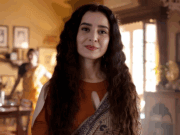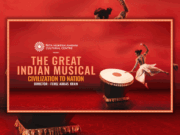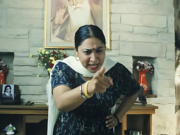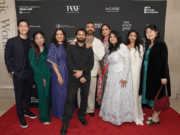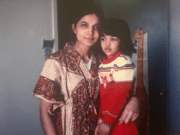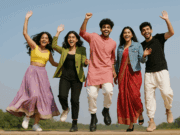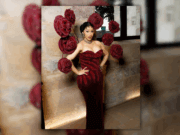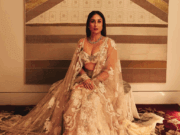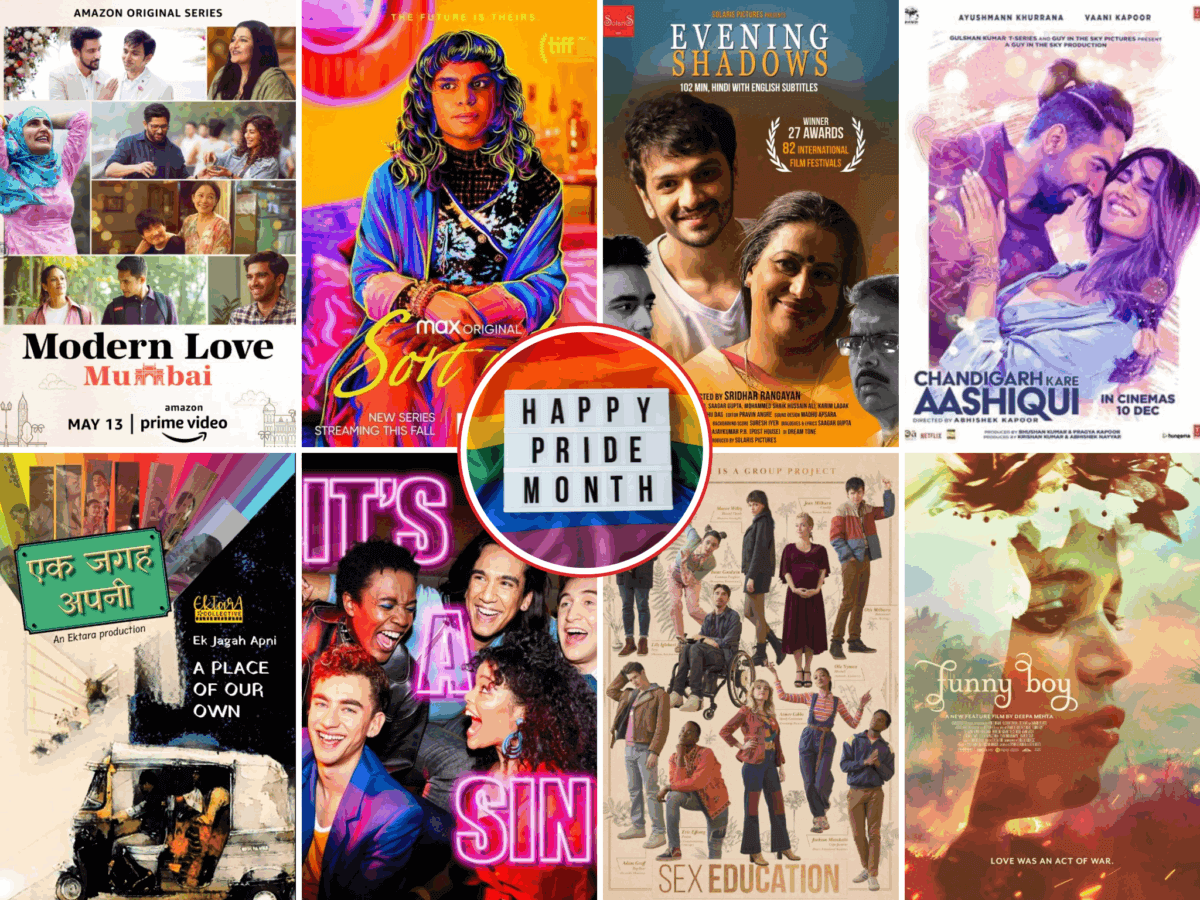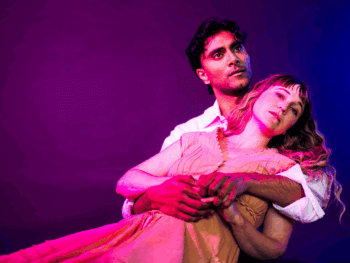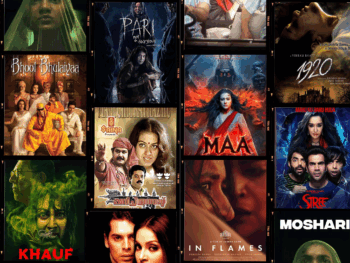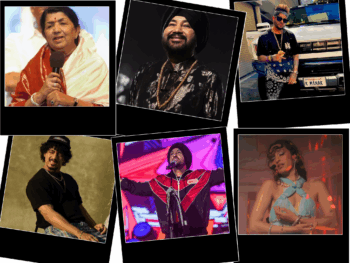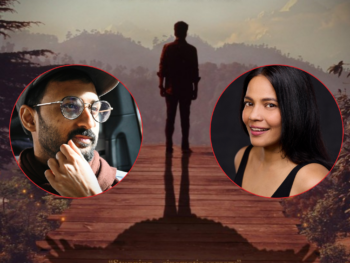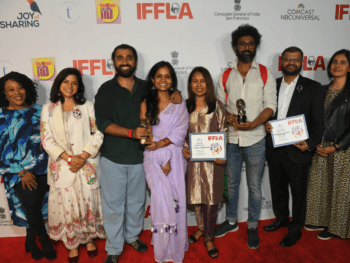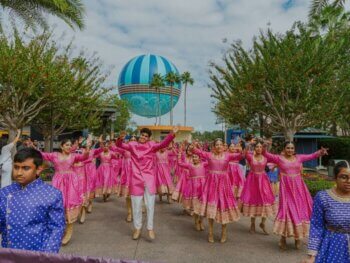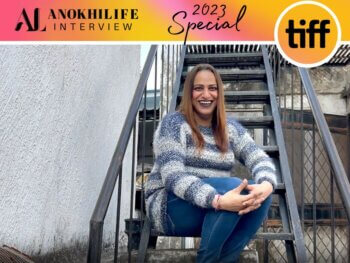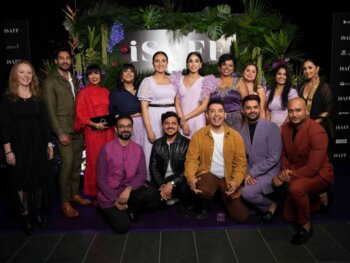June is Pride Month – For me, South Asian cinema is going through a profound, almost magical shift. What once felt like a distant dream is now unfolding before my eyes, a growing wave of films and storytellers daring to embrace diverse sexualities and identities with raw honesty. These aren’t the overblown caricatures or cautionary tales we used to see. Instead, they offer narratives that feel intimate and genuine, resonating deeply with anyone who has ever longed to be understood.
I remember the first time I saw a sapphic love story unfold on the big screen in Ek Ladki Ko Dekha Toh Aisa Laga. It wasn’t just a film, it was a revelation. That quiet yet powerful portrayal of a woman’s struggle to be accepted for who she loves stayed with me. And then there was Nas from Ackley Bridge, whose journey touched my heart. Her coming-out arc was layered with vulnerability, humour, and the bittersweet ache of figuring out where she fits in a world that’s not always kind. Characters like her made me feel seen, as if my own experiences were reflected at me with tenderness.
But it’s not just about these characters, it’s also about the fearless filmmakers behind the scenes. South Asian LGBTQ+ creators are stepping up and shaking the industry with stories that break boundaries. Roshan Sethi’s A Nice Indian Boy brings a refreshing twist with a gay Bollywood wedding rom-com, showing us that love stories are love stories, regardless of gender. We at ANOKHI LIFE were honoured to interview Zarna Garg and Sunita Mani from this movie. Trust me, you need to watch it as it was amusing. We discussed how South Asian families are becoming more accepting!
Shiva Raichandani’s Queer Parivaar takes it a step further, weaving a short film that captures the essence of chosen families and the beauty of queer belonging. Deepa Mehta’s Fire, which I discovered later, was one of the earliest examples of same-sex love being explored on Indian screens, and despite the controversy it faced, it paved the way for so many more voices.
Here’s a curated selection showcasing some of the most compelling and authentic portrayals of queer lives in South Asian media:
My Brother…Nikhil
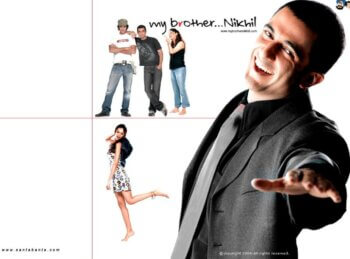
Before queer characters found a place in mainstream South Asian films, like the portrayal of a lesbian woman in Ek Ladki Ko Dekha Toh Aisa Laga or the comedic yet flawed depiction of gay romance in Dostana, there was a film that quietly challenged conventions and sparked conversations. Released in 2005, My Brother… Nikhil was directed by Onir, a filmmaker known for crafting intimate, offbeat stories that often go unnoticed by the masses.
In this film, Sanjay Suri steps into the role of Nikhil, a talented swimmer in Goa whose life takes a turn as he confronts both his HIV diagnosis and his sexuality. His family’s response is complex, marked by both affection and discomfort. Still, his journey is softened by the presence of his supportive sister, played by Juhi Chawla, and his boyfriend, portrayed by Purab Kohli. Their performances add depth to a story that resonates beyond its surface-level plot.
While My Brother… Nikhil didn’t make waves at the box office, it left an indelible mark on the landscape of South Asian queer cinema. To reduce it to “just another gay film” is to overlook its powerful exploration of family, identity, and acceptance.
Evening Shadows
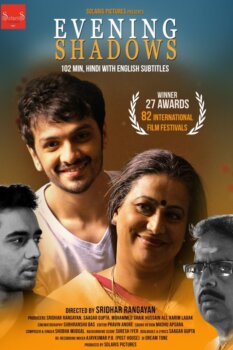
Set against the contrasting backdrops of a conservative town in South India and the urban chaos of Mumbai, Evening Shadows unfolds as a deeply moving exploration of love, identity, and acceptance. Directed by Sridhar Rangayan, the film delicately traces the evolving bond between a young man and his mother, as his coming-out journey forces both to confront unspoken truths and long-held beliefs.
What touched me most about Rangayan’s work is the emotional honesty he brings to queer storytelling. Rather than reducing characters to tropes, he presents them with nuance and compassion, revealing the quiet strength it takes to live authentically in a society that often resists change. His cinema speaks not only to the LGBTQ+ community but also to every parent, sibling, and friend navigating the terrain of unconditional love.
Modern Love Mumbai
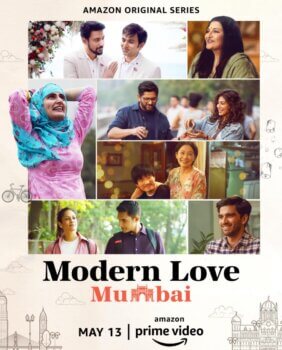
Modern Love Mumbai unfolds six distinct, heartfelt stories that resonate with audiences by exploring the many facets of love. Each episode delves into a unique aspect of human connection, be it romantic, platonic, familial, or the deeply personal journey toward self-acceptance, all set against the lively and layered canvas of Mumbai. Among these narratives is Baai, a moving portrayal featuring Pratik Gandhi, Ranveer Brar, and Tanuja.
This episode centers on Manzu, a queer man who, after years of living apart from his past, returns to his ancestral home. There, he grapples with his love for his partner and his bond with Baai, his doting and ailing grandmother. As old memories and unresolved emotions come to the surface, Manzu must confront his fears and decide whether he can finally reveal his truth to the woman who has always held a cherished place in his life.
Funny Boy
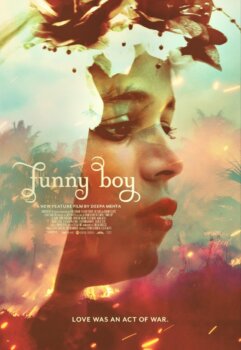
Deepa Mehta’s Funny Boy, adapted from Shyam Selvadurai’s acclaimed novel, is a film that left a lasting impression on me. Set in Sri Lanka during the politically volatile period just before the civil war, it tells the story of Arjie, a Tamil boy navigating the early waves of his sexual identity while his country teeters on the edge of conflict.
The narrative unfolds gently but powerfully, blending the personal with the political. Arjie’s coming-of-age is not just about queerness; it’s about belonging, language, and survival. The class dynamics, ethnic divisions, and unspoken family expectations all intertwine with his inner world, creating a beautifully messy and very human portrait.
Shot between Colombo and Chennai, India, the film features compelling performances from a cast that includes Brandon Ingram and Arush Nand, who bring different phases of Arjie’s life to the screen with quiet vulnerability. While the film was disqualified from the Oscars due to technicalities, its emotional core remains intact. For me, Funny Boy stands as a rare queer South Asian story that doesn’t just demand visibility, it offers tenderness, cultural specificity, and aching truth.
Sort Of
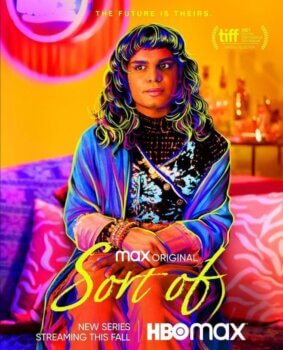
Set against the backdrop of contemporary Canada, Sort Of is a refreshingly original comedy that redefines representation on television. Conceived by Bilal Baig and Fab Filippo, the series charts the life of Sabi Mehboob, a non-binary Pakistani-Canadian twenty-something juggling multiple identities, caring for children in a bustling household, working shifts at a queer-friendly café-bookstore, and balancing familial expectations with personal dreams.
Airing for three compelling seasons on CBC and streaming on CBC Gem in Canada, with international audiences enjoying it on HBO Max, Sort Of has been lauded for its sensitive yet witty portrayal of gender, culture, and belonging. Garnering widespread acclaim, it dominated nominations at the 10th Canadian Screen Awards, secured the Best Comedy Series title twice, and proudly brought home a Peabody Award.
With a tapestry of memorable supporting characters and moments that oscillate between humour and heartache, Sort Of isn’t just a sitcom; it’s a heartfelt reflection of modern lives at the intersections of queerness, culture, and love.
Ek Jagah Apni
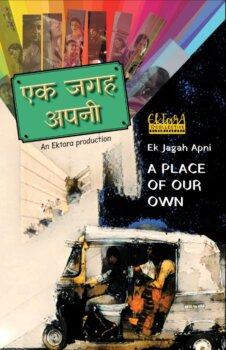
Set in the heart of India, Ek Jagah Apni (A Place of Our Own) follows the emotional journey of Laila and Roshni, two transgender women forced out of their rented accommodation. As they search for a new roof over their heads, it becomes increasingly clear that what they’re truly seeking is not just shelter, but recognition, dignity, and a space in a society that often pushes them to the margins.
Brought to life by first-time trans actresses Manisha Soni and Muskan, the film tenderly explores how systemic exclusion and everyday bias collide with the universal human need for acceptance. Their path is filled with setbacks and refusals, but it also brings unexpected kindness and solidarity, proving that chosen families and genuine connections often grow in the most unlikely places.
Produced by the grassroots filmmaking group Ektara Collective in Bhopal, the film has been internationally recognised, including a screening at the Cannes Film Market and a premiere at the International Film Festival of Kerala. Ek Jagah Apni is not just about finding a home; it’s about reclaiming space in a world that rarely offers one freely.
Chandigarh Kare Aashiqui
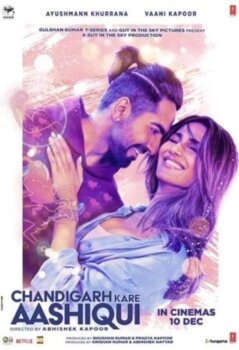
Chandigarh Kare Aashiqui brings together elements of romantic comedy and social commentary, offering a glossy yet well-intentioned take on love and identity. Directed by Abhishek Kapoor and featuring Ayushmann Khurrana alongside Vaani Kapoor, it is currently streaming on Netflix.
Set in the vibrant city of Chandigarh, the story follows Manu, a macho gym trainer who falls head over heels for Maanvi, a confident and charming Zumba instructor. Just as their whirlwind romance begins to bloom, Manu learns that Maanvi is a transgender woman. What follows is a mix of confusion, emotional turmoil, and personal growth as Manu wrestles with his biases and gradually opens his heart and mind.
The film deserves credit for attempting to bring a transgender lead character into mainstream Bollywood storytelling, and both actors were lauded for their heartfelt performances. Vaani Kapoor, in particular, brings sensitivity to a role rarely explored in commercial Indian cinema.
While Chandigarh Kare Aashiqui is entertaining and watchable, with its blend of catchy music, humour, and emotional beats, it still leans on formulaic storytelling and simplifies complex realities. It’s a fun watch for those new to queer narratives, but for deeper, more authentic portrayals of transgender experiences, other South Asian films offer richer insight and greater emotional depth.
It’s a Sin
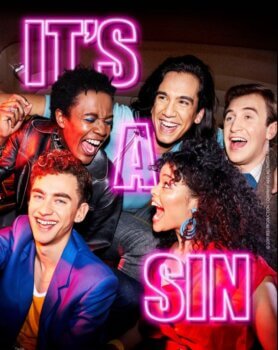
It’s a Sin is a deeply moving British drama that paints a powerful portrait of queer life during the HIV/AIDS crisis in 1980s London. Created by Russell T Davies, the series centres on a group of young LGBTQ+ friends as they come of age in a time marked by joy, discovery, heartbreak, and devastating loss.
What makes the show particularly impactful is how it humanises a generation often forgotten or misrepresented. The story doesn’t just focus on illness; it captures laughter, intimacy, music, friendship, and the pursuit of freedom. Within this rich emotional tapestry, characters like Ash Mukherjee (played by Nathaniel Curtis) stand out as quiet symbols of resilience. As a British Indian gay man, Ash’s presence expands the show’s inclusivity, offering much-needed South Asian queer representation on mainstream British television.
Another standout is Lizbeth Farooqi, played by Seyan Sarvan, a fierce and compassionate lawyer who refuses to let the system silence her clients. Her battle for justice becomes one of the show’s most compelling subplots, reminding viewers of the often-overlooked allies in the fight for LGBTQ+ rights.
With brilliant writing, unforgettable performances, and moments that both uplift and devastate, It’s a Sin not only earned critical acclaim but also sparked a nationwide surge in HIV testing in the UK. It’s more than just a television series; it’s a cultural milestone that honours those who lived, loved, and were lost.
Cobalt Blue

Cobalt Blue isn’t just a film, it’s a quiet, aching journey into the vulnerability of desire, belonging, and the unsettling disruption of norms within a traditional Indian household. Directed by Sachin Kundalkar and adapted from his novel, this Netflix original unravels the emotional lives of a brother and sister who both fall, silently, deeply, for the same enigmatic paying guest.
Set within the soft stillness of a conservative Marathi home, the story unfolds like a slow burn. The arrival of the unnamed man, portrayed with raw magnetism by Prateik Babbar, ignites more than just attraction; it unlocks long-suppressed parts of the siblings’ identities. Tanay (Dr. Neelay Mehendale), a gentle, introspective writer, finds in him the love he’s been too afraid to name. Meanwhile, his sister Anuja (Anjali Sivaraman) imagines a future where love might set her free.
What struck me most while watching was how Kundalkar doesn’t offer dramatic declarations or easy resolutions. Instead, the heartbreak is quiet. The silences stretch. The longing lingers. And for those of us who have known the feeling of being unseen in a world that only accepts what fits its template, Cobalt Blue feels personal.
Yes, it’s about queer love. But more than that, it’s about the loneliness of not being able to speak your truth, and the quiet courage it takes to survive in the aftermath of loving someone who was never yours to begin with.
Sex Education
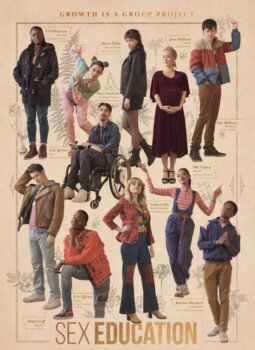
Sex Education on Netflix is the perfect blend of wit, chaos, and heartfelt coming-of-age moments. Set in a British high school where awkwardness is practically a second language, the series follows Otis Milburn, a shy teen with zero romantic experience, who just happens to live with his mother, Jean, a blunt, brilliant sex therapist.
Growing up around explicit books, uncomfortable conversations, and clinical advice, Otis unintentionally becomes the go-to guy for solving everyone else’s love and intimacy dilemmas. But the real twist? He starts a secret sex therapy clinic at school with Maeve, an intelligent, rebellious classmate who sees both a business opportunity and a way to help their emotionally clueless peers.
What I enjoy about Sex Education is how it handles big conversations with humour, empathy, and diversity. From gender identity and asexuality to heartbreak and friendship, nothing is off-limits, and it never feels forced. The cast is gloriously inclusive, and the characters are as messy as they are lovable.
One standout for me is Anwar, played by Chaneil Kular. His sharp-tongued sass, fierce style, and rollercoaster of a dating life bring just the right dose of drama and comic relief. He’s one of those characters you don’t expect to love but do.
If you’re ever in need of something light-hearted that still manages to say something real, Sex Education might be just the escape you’re looking for, with awkward kisses, emotional breakthroughs, and all.
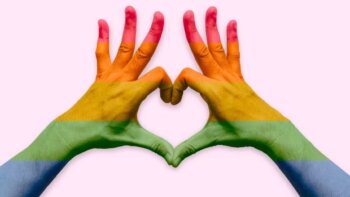
These South Asian queer films and shows shine a powerful light on the complexities of LGBTQ+ lives, offering a raw, layered, and honest portrayal of love, longing, identity, acceptance, and the personal cost of truth. From coming out to societal rejection, from tender romance to aching solitude, each story carries a heartbeat of its own. Some titles bring much-needed levity and amusement, while others delve into deeply emotional terrain, capturing the vulnerability and courage it takes to live authentically.
What makes these films stand out is not just the representation they offer, but the humanity they reclaim. These are not just stories about queerness. These are stories about people finding their place in the world, redefining love, and daring to be seen.
Through this article, I aimed to explore how South Asian cinema, despite its cultural conservatism, is slowly but steadily creating space for queer narratives that matter. Stories that once lived in the margins are now stepping into the spotlight, reshaping mainstream storytelling and reminding us all that everyone deserves to be heard, loved, and understood.
In the end, this is not just about films. It’s about the freedom to live one’s truth, and the courage to claim one’s place in a world that’s learning, ever so gradually, to make room for all kinds of love.
Do Check Out: This month’s cover story features an intimate conversation with Vivek Shraya, one of today’s most compelling voices in art and activism. With fearless honesty and emotional depth, she unpacks themes of identity, gender, race, and belonging. Through her work spanning music, literature, and performance, Shraya not only challenges societal norms but also offers solace and connection to those searching for visibility and understanding.
Main Image Photo Credit: www.imdb.com
Mehak Kapoor | Entertainment Editor
Author
Mehak Kapoor (@makeba_93) is an entertainment and lifestyle journalist with over a decade of experience in anchoring and content creation for TV and digital platforms. Passionate about storytelling and factual reporting, she enjoys engaging with diverse audiences. Outside of work, she finds solace i...




